#democracy failing
Text
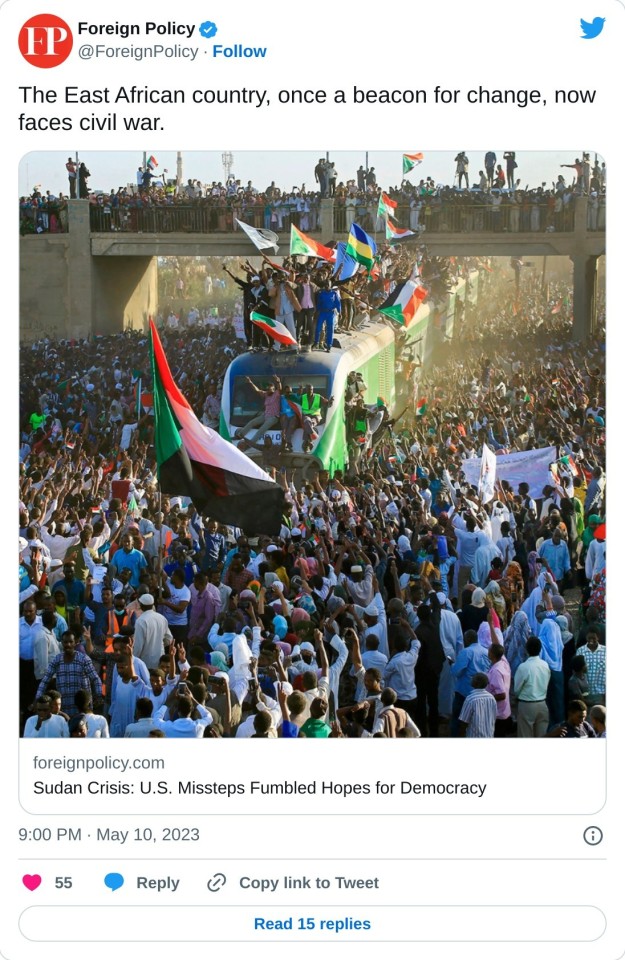
In late October 2021, a top U.S. envoy met with Sudanese military commanders and Sudan’s top civilian leader to shore up the country’s precarious transition toward democracy. The generals assured Jeffrey Feltman, then the U.S. special envoy for the Horn of Africa region, that they were committed to the transition and would not seize power. Feltman departed the Sudanese capital of Khartoum for Washington early on the morning of Oct. 25. En route, he received news from Sudan: Hours after he left, those military leaders had arrested the country’s top civilian leaders and carried out a coup.
For the next 18 months, Washington adopted a series of controversial policy measures to both maintain ties with the new military junta and try to push the East African nation back toward a democratic transition. Months of work led to a new political deal that offered, on paper at least, new hope, and some Biden administration officials felt they were tantalizingly close.
But the deal blew up in the eleventh hour as violence erupted across Khartoum last month between forces controlled by the rival generals, Abdel Fattah al-Burhan, who leads the Sudanese Armed Forces (SAF), and Mohamed Hamdan “Hemeti” Dagalo, the head of the powerful Rapid Support Forces (RSF) paramilitary group.
The collapse of Sudan’s democratic transition has led to anger and backlash in Washington among diplomats and aid officials, some of whom feel that the Biden administration’s policies empowered the two generals at the center of the crisis, exacerbated tensions between them as they pushed for a political deal, and shunted aside pro-democracy activists in the process.
“Maybe we couldn’t have prevented a conflict,” said one U.S. official who spoke on condition of anonymity. “But it’s like we didn’t even try and beyond that just emboldened Hemeti and Burhan by making repeated empty threats and never following through.”
“And all the while,” the official added, “we let the real pro-democracy players just be cast to the side.”
The conflict between Burhan’s and Hemeti’s forces turned Khartoum overnight into a battle zone that put millions of citizens, as well as U.S. and foreign government personnel, in the crossfire of firefights, airstrikes, and mortar attacks. The fighting has pushed Sudan toward the brink of collapse and undermined, perhaps permanently, a Western-funded project to bring democracy to a country beset by autocracy and conflict for half a century.

People run and walk through the streets in front of an armored personnel carrier as fighting in the Sudanese capital of Khartoum continues between Sudan’s army and paramilitary forces on April 27. AFP via Getty Images
As successive rounds of cease-fires fail, Western officials and analysts increasingly fear that the fighting could lead to a full-scale civil war, bringing a new vacuum of instability and chaos to a region already suffering humanitarian crises and along the strategic Red Sea, through which 10 percent of global trade flows.
“The way things are going, Sudan begins to resemble a massive Somalia of the early 1990s on the Red Sea, a total state breakdown, if the fighting doesn’t stop,” said Alexander Rondos, a former European Union envoy for the Horn of Africa.
Interviews with about two dozen current and former Western officials and Sudanese activists close to the negotiations describe a deeply flawed U.S. policy process on brokering talks in Sudan in the run-up to the conflict, monopolized by a select few officials who shut the rest of the interagency team out of key deliberations and stamped out a growing chorus of dissent over the direction of U.S. Sudan policy.
“From the outset, there was a consistent and willful dismissal of views that questioned whether the U.N. talks would be a recipe for success or for failure,” said one former official familiar with the matter. “Those warnings were ignored, and instead the U.S. built a dream palace of a political process that has now crashed down on the people of Sudan.”
Current and former U.S. officials, many of whom spoke on condition of anonymity, said internal warnings of roiling tensions in Khartoum and a possible conflict were dismissed or ignored in Washington, setting the stage for U.S. government personnel to be trapped amid the fighting in various parts of Khartoum with no advance preparations to move them to safety. In Khartoum, these officials and Sudanese analysts said, the policy was further hampered by an embassy that was for years understaffed and out of its depth, without even an ambassador for much of the crucial period.

A woman inside her house protects her face from tear gas in the Abbasiya neighborhood of Omdurman, Sudan, on Nov. 13, 2021. Organizations called for civil disobedience and a general strike during demonstrations against the military coup. Abdulmonam Eassa/Getty Images
“We seemed to have lost all institutional memory on Sudan,” said Cameron Hudson, a senior associate at the Center for Strategic and International Studies and former State Department official. “These generals have been lying to us for decades. Anybody who has worked on Sudan has seen this stuff play out time and time and time again.”
The U.S. State Department has sharply disputed these characterizations. “U.S. engagement after the October 2021 military takeover was centered on supporting Sudanese civilian actors in a Sudanese-led process to re-establish a civilian-led transitional government,” a State Department spokesperson said in response.
“The United States did not press for any specific deal but tried to build consensus and put pressure on the key actors to reach agreement on a civilian government to restore a democratic transition,” the spokesperson said and added that those efforts included “near constant diplomacy, often working closely with civilians, to defuse tensions between the SAF and RSF that arose multiple times and again emerged in the days before April 15, 2023,” when the fighting began.
Still, for an administration that has made promoting global democracy a centerpiece of its foreign policy, many government officials who spoke to Foreign Policy contended that Sudan could stand as one of the starkest foreign-policy failures, even in the wake of the successful evacuation of all U.S. government personnel and campaign to help U.S. citizens escape the country.
These officials also fear that the crisis could reverberate well beyond Sudan’s borders if the warring sides don’t agree to a viable cease-fire soon, with the risk of rival foreign powers exacerbating the conflict and transforming it into a proxy war.
Interviews with multiple Sudanese activists and civil society leaders, meanwhile, paint the picture of a pro-democracy movement that has completely lost faith in the United States as a beacon for democracy and supporter of Sudan’s own democratic aspirations. Many spoke on condition of anonymity for fear of their safety as fighting continued in Khartoum.
“Either the U.S. and West properly step up or they just need to fuck off because halfhearted steps and empty threats of sanctions, again and again and again, are doing more harm than good,” said one Sudanese person deeply familiar with the internal negotiations. “Our trust in the U.S. is entirely gone.”
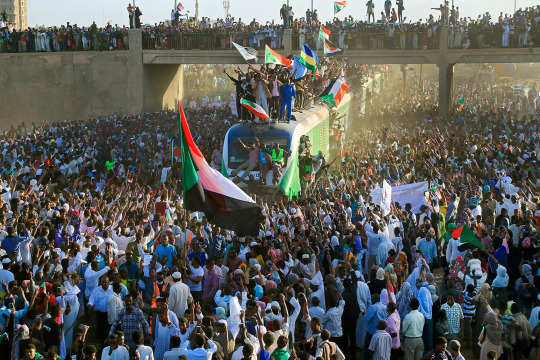
Sudanese protesters cheer on arriving to the town of Atbara from Khartoum on Dec. 19, 2019, to celebrate the first anniversary of the uprising that toppled Sudanese dictator Omar al-Bashir. Ashraf Shazly/AFP via Getty Images
After a popular pro-democracy uprising ousted longtime dictator Omar al-Bashir in 2019 and set the stage for Sudan to rejoin the international community after decades as an international pariah, the United States invested countless diplomatic resources and hundreds of millions of dollars in Sudan’s democratic transition.
Sudan seemed poised to be a success story. A popular uprising, led in many ways by Sudanese women, had ousted one of the world’s most notorious dictators. U.S. President Joe Biden in a major U.N. speech in September 2021 denounced the global rise of autocracy and touted Sudan as one of the most compelling contrasts to that trend worldwide after the 2019 revolution. In Sudan, he said, there was proof that “the democratic world is everywhere.”
Just a month later, Burhan and Hemeti orchestrated their coup. Afterward, the Biden administration froze some $700 million in U.S. funds to aid in the democratic transition and, over a year later, issued visa restrictions on “any current or former Sudanese officials or other individuals believed to be responsible for, or complicit in, undermining the democratic transition in Sudan.” The World Bank and International Monetary Fund also froze $6 billion in financial assistance.
But some U.S. diplomats felt that didn’t go far enough and none of those reprisals would directly affect Burhan or Hemeti. A fierce internal debate unfolded. Some officials argued that Washington needed to roll out punishing sanctions against Burhan and Hemeti to bring them to heel and show support for pro-democracy activists. Other officials, including Assistant Secretary of State Molly Phee—Biden’s top envoy for Africa—argued that sanctions wouldn’t be effective and might undermine U.S. influence with Burhan and Hemeti as they sought to bring them back to the negotiating table.
“There was the right thing to do, to show the Sudanese people we were all-in on democracy, to punish Hemeti and Burhan for this blatant coup, and then there was the wrong and slightly more expedient thing to do, [to] just keep working with them after some stern finger-wagging,” said one U.S. official involved in the process. “We chose door number two.”
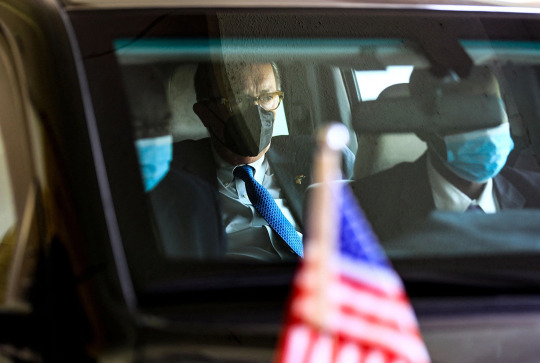
Jeffrey Feltman, the U.S. special envoy for the Horn of Africa, leaves after meeting with Sudanese Prime Minister Abdalla Hamdok in Khartoum on Sept. 29, 2021. Ashraf Shazly/AFP via Getty Images
Feltman, the former U.S. envoy, said he advocated for sanctioning Burhan and Hemeti during his time in government but in hindsight wasn’t sure if it could have prevented the conflict. “Do I think sanctions ultimately would have prevented them from eventually taking 46 million people of Sudan hostage because of their personal lusts for power? No.”
There were other complicating issues as well. Senior Biden administration officials working on Africa policy were consumed by the war in neighboring Ethiopia, where an estimated 200,000 to 600,000 people died during a bloody conflict in the country’s northern Tigray region. And the U.S. Embassy in Khartoum was understaffed and unable to come to grips with the situation; a full-time U.S. ambassador wouldn’t arrive until three years after Bashir’s ouster. During this time, officials say, Phee took direct charge over U.S. policy on Sudan.
Phee worked closely with a U.S. Agency for International Development official detailed to the State Department, Danny Fullerton, in Khartoum to negotiate directly with Burhan and Hemeti and bring them to the table for a new political deal.
“The embassy was just very beleaguered, with a real shortage of skilled or enough political officers, and both the chargés d’affaires and later the ambassador when he got there were very frustrated with a lack of support from Washington,” said one American familiar with internal embassy dynamics. “It was a group that was out of its depth, overly busy, and, frankly, not as well connected as it should’ve been with the right people in Sudan’s pro-democracy communities.”
This official said severe embassy staffing shortages, detailed in a State Department watchdog report on the embassy published in March, and leadership issues contributed to difficulties in hashing out negotiations with Burhan and Hemeti. But other current and former officials dispute that, insisting that the State Department can still make deals with high-level involvement from officials in Washington, even with an understaffed embassy.
Five current and former U.S. officials and two Sudanese activists familiar with the negotiations said that before the U.S. ambassador came to Khartoum in late 2022, U.S. officials involved in the negotiations with Hemeti and Burhan didn’t do enough to incorporate Sudan’s pro-democracy resistance committees into deliberations on a new political deal with the two generals, nor did they heed warnings about the inherent risks and flaws in a new deal.
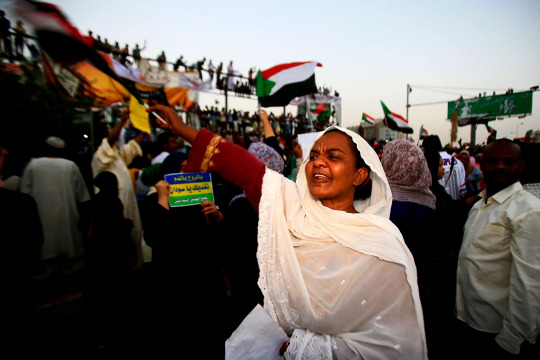
A Sudanese woman chants slogans and waves a national flag during a demonstration demanding a civilian body to lead the transition to democracy outside the army headquarters in Khartoum on April 12, 2019. Ashraf Shazly/AFP via Getty Images
These officials said there was mounting dissent in Washington over the trajectory of U.S. policy but that Phee dismissed other policy options, including threatening Hemeti or Burhan with sanctions or other forms of pressure or incorporating Sudan’s pro-democracy groups into the political negotiations. The State Department watchdog report also noted that the deputy chief of mission in Khartoum “at times remained focused on her predetermined course of action and did not consider alternatives offered by staff”—though the report did not address whether this had any affect on U.S. policy.
The State Department spokesperson, however, sharply disputed these characterizations: “While we cannot comment on internal policy deliberations, State Department leaders carefully considered policy proposals and different opinions on our policy on Sudan and did not dismiss or stamp out any dissent.”
All the while, Burhan and Hemeti sought to expand their own power and influence across Sudan, currying favor with foreign powers and setting the stage for a growing rivalry that would later ignite a deadly conflict. Burhan found backers in neighboring Egypt. Hemeti courted the United Arab Emirates and Russia and began deepening ties between the RSF and the Wagner Group, a shadowy Russian mercenary outfit widely reported to be responsible for war crimes in other parts of Africa and in Ukraine. Hemeti, implicated in widespread atrocities in Sudan’s Darfur conflict that broke out in 2003, launched a coordinated public relations campaign to try to transform himself into a statesman on the world stage in what was seen as a political charm offensive and challenge to Burhan’s rule.
Hemeti visited Moscow on Feb. 23, 2022, on the eve of Russia’s full-scale invasion of Ukraine, to discuss the possible opening of a Russian port on Sudan’s coast along the strategic trade routes in the Red Sea. Some U.S. officials who had been pushing for sanctioning Hemeti believed his brazen visit to Moscow would finally convince top decision-makers to finally pull the trigger on a major new tranche of sanctions. The sanctions never came.
Around that time, at least one memo was written and circulated within the State Department’s Bureau of African Affairs warning of the risks of current U.S. policy on Sudan and listing potential scenarios that could emerge from the rivalry between Burhan and Hemeti, including those tensions erupting into a full-scale conflict. The memo, described in broad terms by several congressional aides and former officials familiar with it, was meant to go to U.S. Secretary of State Antony Blinken’s desk, but the draft was heavily edited, watered down, and never passed out of the bureau, those people said. “Still, the State Department leaders can’t say they weren’t warned,” one former official said.
Human rights advocates have also criticized the Biden administration’s approach to Sudan in the months leading up to the eruption of violence in April. “By repeatedly failing to hold abusive leaders accountable or making clear, through concrete measures, that abusive behavior would not be condoned, Sudan’s Western partners sent these generals the signal that they can continue holding the country at a gunpoint with almost no consequences,” said Mohamed Osman, an expert on the region at Human Rights Watch.
During this time, Sudanese activists became increasingly disenchanted with the U.S. approach to Sudan. “There was no meaningful commitment that we’d ever seen from either [Burhan or Hemeti], and that was all put aside and sacrificed effectively at the altar of a political process and a political agreement that was never going to hold and that had very little popular support,” said Kholood Khair, a Sudanese political analyst who followed the negotiations closely.

John Godfrey, the U.S. ambassador to Sudan, delivers a speech in Port Sudan amid the delivery of tons of corn as part of U.S. humanitarian support for the country on Nov. 20, 2022. AFP via Getty Images
In September 2022, John Godfrey, a career U.S. diplomat with experience in the Middle East and North Africa and a background in counterterrorism, landed in Khartoum as the first U.S. ambassador to Sudan in a quarter century. Godfrey, officials said, immediately began trying to make inroads with so-called resistance committees and other civil society organizations that had been the driving force in Sudan’s push for democracy.
“He was beset with the cards that were dealt to him,” the American familiar with the embassy’s internal dynamics said. “He was burning the candle at both ends trying to make this deal happen, even if people back in Washington, outside of Phee and the [Bureau of African Affairs], weren’t giving Sudan much attention or thought.”
Even as Russia’s war in Ukraine and the ongoing conflict in Ethiopia distracted most in Washington, Phee and Godfrey—alongside counterparts including senior diplomats from the United Kingdom, United Nations, African Union, and a regional bloc called the Intergovernmental Authority on Development—pushed to restart Sudan’s transition to civilian rule. An apparent breakthrough came last December, when Sudan’s military leaders and some factions of the country’s pro-democracy forces agreed to a new civilian-led transitional government in a matter of months.
But the Western negotiators acceded to demands by Hemeti and Burhan to cut civil society and pro-democracy activists out of the negotiations, giving the military junta an early win over the weaker civilian groups, officials said. The December agreement also left unresolved one major issue that would soon become an explosive one: plans to incorporate the RSF into the SAF to create one unified military force for the country.

People gather to protest the framework agreement signed by Sudan’s military and civilian leaders, which aims to resolve the country’s governance crisis, in Khartoum on April 6. Mahmoud Hjaj/Anadolu Agency via Getty Images
That question fueled more tensions between Burhan and Hemeti in the coming months. Analysts in Khartoum began sounding alarm bells about the roiling tensions that would set the stage for an eruption of violence. The push for the agreement may have exacerbated it.
“There was this absolute desperation to push the final deal over the line to the point of succumbing false hope,” said another person involved in the negotiations.
In Washington, however, plans were underway to celebrate the new transitional government the second the agreement was signed. The embassy continued arranging meetings with Hemeti and Burhan and conducting routine embassy business; an American rock band played a festival in March as part of a State Department public diplomacy tour.
The business-as-usual approach belied the tensions in Khartoum. A signing ceremony for the deal was delayed and then delayed again. Burhan and Hemeti were amassing forces around Khartoum. Some low-level U.S. diplomats and Sudanese civilian negotiators began more explicitly warning their friends and colleagues back in Washington through informal back channels that a conflict seemed imminent.
“People were calling around, saying, ‘You’ve got to pass up these messages to everyone you know in D.C. that there could really be a war, it doesn’t feel like the international community is taking us seriously’” said the American familiar with internal embassy dynamics.
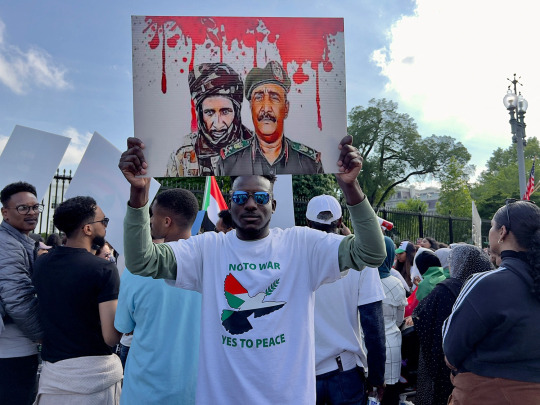
Activists demonstrate in front of the White House in Washington on April 29, calling on the United States to intervene to stop the fighting in Sudan. Daniel Slim/AFP via Getty Images
Top officials in Washington either downplayed or misinterpreted these warning signs, according to six officials and congressional aides familiar with the matter. It wasn’t the first time that Burhan and Hemeti had amassed forces around Khartoum, nor the first time that U.S. interlocutors had to step in to help calm the tensions.
Godfrey and his counterpart from London, Giles Lever, who played key roles in shepherding the December deal to the finish line, left the country on separate vacations by early April, a sign that Washington felt the deal was all but done. Back in Washington, after Burhan and Hemeti signed the agreement, the State Department sent word to Congress that it wanted to ready $330 million in funds to aid Sudan’s democratic transition, according to three congressional aides and officials familiar with the matter. Those officials said the department was drafting a carrot-and-stick plan for Sudan, with the millions of dollars of funding the carrot and new sanctions authorizations a hefty stick.
The State Department had a long-standing Level 4 travel advisory for Sudan, recommending that U.S. citizens “do not travel” there, and sent out one additional security alert, on April 13, advising citizens to avoid Karima in northern Sudan, and barring U.S. government personnel from leaving Khartoum, in light of the “increased presence of security forces.” The United States didn’t issue a broad travel warning urging citizens to leave via commercial air travel, consolidate U.S. government personnel inside Khartoum in the event of a crisis, or order a departure of nonessential personnel as tensions between Burhan and Hemeti reached a boiling point.
“We’re all really questioning why we didn’t do more to prepare for the worst-case scenario,” a third U.S. official said.
Drone footage shows clouds of black smoke over Bahri, also known as Khartoum North, outside Sudan’s capital, in a May 1 video obtained by Reuters.Third-party video via Reuters
On April 15, the tensions between Hemeti and Burhan finally boiled over. The RSF launched what appeared to be a coordinated series of attacks on SAF bases and hammered Khartoum International Airport with gunfire and missiles—effectively cutting off the only viable means of escape in a densely populated city that is hundreds of miles from the coast or nearest border.
At once, the city of some 5 million people became a battle zone. The U.S. Embassy began working frantically to consolidate all its personnel and their families in several key locations. Godfrey, the U.S. ambassador, had rushed back to Khartoum, cutting his vacation short, just before the fighting erupted. RSF fighters carried out wholesale looting and assaults, and SAF troops began bombing sites around Khartoum. RSF fighters assaulted the EU’s ambassador in Khartoum, Aidan O’Hara, and in various other instances reportedly fired on, briefly kidnapped, or sexually assaulted U.N. and international organization workers, according to internal U.N. security reports obtained by Foreign Policy.
The White House, State Department, and Defense Department leaped into crisis mode, working around the clock to draft up embassy evacuation plans. On April 22, a contingent of U.S. troops took off from a U.S. base in Djibouti on three Chinook helicopters and, after refueling in Ethiopia, landed in Khartoum to safely evacuate all U.S. government staff and their families. All the while, top U.S. diplomats worked to arrange temporary cease-fires between Burhan and Hemeti to aid civilians and assist those trying to escape.
“None of the foreign diplomatic missions in Khartoum changed their security posture or staffing levels before the outbreak in fighting, and the U.S. embassy was very focused and effective in consolidating its personnel immediately after the war started,” the State Department spokesperson said.
An estimated 16,000 U.S. citizens remained trapped in the city, including many dual U.S.-Sudanese citizens and a smaller number of NGO and aid workers who worked on U.S.-funded humanitarian and development programs. U.S. lawmakers became infuriated that the Biden administration wasn’t doing more to aid in the evacuation of U.S. citizens after the initial outbreak of the conflict, comparing the fiasco to the ignominious withdrawal from Afghanistan.
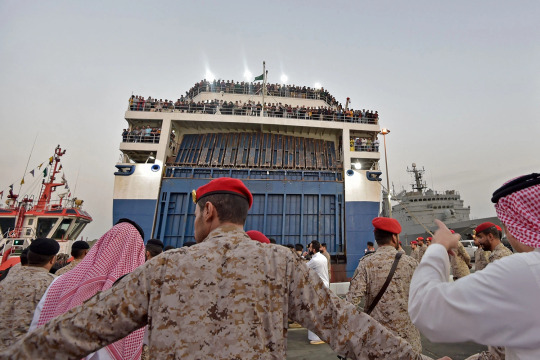
The Saudi-flagged ferry passenger ship Amanah carrying evacuated civilians fleeing violence in Sudan arrives at King Faisal Naval Base in Jeddah, Saudi Arabia, on April 26. Amer Hilabi/AFP via Getty Images
One resident who stayed in Khartoum was Bushra Ibnauf, a dual U.S.-Sudanese citizen and doctor who had moved back to Khartoum from Iowa. “He had a passion for doing good. I remember him saying, ‘I can be replaced in Iowa, but I can’t be replaced in Sudan,’” said Yasir Elamin, the president of the Sudanese American Physicians Association and a close friend and colleague of Ibnauf. Ibnauf and other doctors ventured out amid gunfights and explosions to provide aid to wounded civilians as the conflict dragged on.
Other Sudanese citizens began trying to make their way out of Khartoum, either by fleeing north to the Egyptian border or on a precarious overland journey to the coast at Port Sudan. “It was hell on earth,” recalled one Sudanese activist who escaped Khartoum. “We only left through the city and all the firefights because we were running out of water. Our choice was either definitely die of thirst or maybe get hit by bullets. It was no choice at all.”
U.S. officials have made brokering a sustainable cease-fire their top priority, but so far no cease-fire has held. Both Burhan and Hemeti have sent negotiators to peace talks in Jeddah, Saudi Arabia, coordinated with Washington and Riyadh, but many officials and analysts doubt the talks will lead anywhere after multiple ceasefire attempts failed. On May 4, Biden announced a new executive order granting new legal authorities to impose sanctions on those involved in the violence in Sudan. Some Sudanese analysts doubt sanctions will work.
“The point of sanctions is that it is used as a threat during normal times to prevent bad actors from doing bad things,” said Amgad Fareid Eltayeb, a former assistant chief of staff to Sudanese Prime Minister Abdalla Hamdok before he was ousted from power. “I think right now it’s too little, too late—it’s already a war situation.”
The situation in Khartoum remains dire. “I don’t think so-called safe areas right now are going to be safe for much longer because the aim of the game from both sides seems to be total control of the country,” said Khair, the Sudanese political analyst.

A Sudanese person paints graffiti on a wall during a demonstration in Khartoum on April 14, 2019. Omer Erdem/Anadolu Agency/Getty Images
U.S. lawmakers are pressing for new envoys to enter the fray. Rep. Michael McCaul, the Republican chairman of the House Foreign Affairs Committee, and his Democratic counterpart, Rep. Gregory Meeks, issued a joint appeal to Biden and the U.N. to appoint new U.S. and U.N. special envoys to Sudan, saying that “[d]irect, sustained, high-level leadership from the United States and United Nations is necessary to stop the fighting from dragging the country into a full-blown civil war and state collapse.”
Many Western officials fear that Sudan could plunge into civil war if the fighting isn’t stopped soon, but it’s also unclear what a viable cease-fire would mean for any hopes of reviving the moribund democratic transition in Sudan. “This is not yet a full-scale civil war, à la Syria, à la Libya,” said Feltman, the former U.S. envoy. “It’s still a fight between two rival forces. Now is the time to arrest it, to stop it before it spirals.”
All the while, the fighting in Khartoum continues. Some U.S. citizens have found additional ways to evacuate, either with the direct assistance of the U.S. government or of other countries.
Others weren’t so lucky. Ibnauf, the Sudanese American doctor who stayed in Khartoum to provide succor to civilians amid the fighting, was stabbed to death by suspected looters in front of his family on April 25.
#Sudan#east africa#khartoum#us fighting#colonialism 2023#emergency evacuations#Sudan Crisis: U.S. Missteps Fumbled Hopes for Democracy#failed us policy#Africa
22 notes
·
View notes
Text
Love how my dash is full of amerikkkans fighting each other.
“Vote for Joe who’s currently killing your family or I will lose my privileges and you will be even worse off!”
Don’t know what it will take for the USA to strive for socialism but voting for gop won’t get you there. The aipacs are stacked against Muslim Americans and you want Muslims and Arabs to vote for the people bombing their countries and killing millions who look like them (see Iraq).
Mobilise your white friends , your homeless friends, your family, your indebted and ill friends.
But the lack of empathy for those suffering from genocide is the most crystal clear example of amerikkkan exceptionalism I have ever seen.
#imperialism#false democracy#oligarchy#election 2024#Palestine genocide#from the river to the sea palestine will be free#the USA hurtles rapidly to authoritarian white supremacy#the experiment fails in real time thanks to capitalism buying politicians#the nra was the canary#Reagan’s vision for America truly realised#the terror amerikkka leashed in the world now turns inwards#they bombed a kindergarten and y’all are entertained#ok genocide is wrong people
5 notes
·
View notes
Text
Democracy is where the opinion of a fool and an expert has equal weight. Since there is more significance to quantity than quality and the fact that there are more idiots on earth than wise ones, whatever gets popular takes home the prize. So God forbid if pedophilia becomes the growing sentiment in a population, then it may even become a law of the nation. Do you still have any trust in democracy? Do you still think a nation can be left to the opinion of majority? At what point of human history did we get so degraded to measure truth merely by popularity? It seems like people have literally started buying ideas that are absolutely alien and also lethal to the very fabric of the society...
Random Xpressions
6 notes
·
View notes
Text
Someone has to say it:
We either need all the bigots and fascists to move to Texas (thereby creating a mass exodus situation for those who live there probably)
OR we need to admit there are too many bigots and fascists who vote and/or are in positions of power. And do something about it
Like vetting all legislation/representatives that are anything like that.
(One of these is a reasonable option)
#politics#democracy#capitalism#fail#late stage capitalism#is killing me#and#everything everywhere all at once#seriously#socialism#universal basic income#universal healthcare#defund the police#defund the military#we have the answers#like#renewable energy#artificial intelligence#eat the rich#period
6 notes
·
View notes
Text
this came in response to seeing some blog post on my dash about the jedi and republic. i'm usually cool with the jedi, but this post set me off because of the way it defended the Republic.
i understand being jedi positive and jedi critical. i will side eye you immensely and run screaming if you are empire positive beyond the whole 'cool aesthetic and badass villains' and empire crits should and are the norm. i even get being new republic positive-while they suck, they are way better than the neo-nazis.
what i don't understand is, especially in the context of the prequels, is being republic-positive. like, the republic is not this holy paragon symbiotic relationship with the jedi that flourished harmoniously without the evil Sith. like, it's canon that the republic has been failing and a problem since like, before baby palpatine existed. the jedi behold themselves to the republic out of tradition, not for the republic itself. the republic is george lucas's hamfisted take on fucking american imperialism. are you seriously trying to defend this? you really want to look at me and tell me that everything was fine with Bush Era Politics? really?
#star wars#starwars#the old republic#jedi#the jedi order#jedi council#anti old republic#sw#sw prequels#prequel trilogy#sw fandom#star wars prequels#sw meta#star wars meta#jedi order#george lucas may not be the best at explaining shit#but maybe the fact that the republic was failing long before palpatine existed was kind of the point#about democracies' deaths are slow and thus no one notices until it's too late to do anything about it#and how imperialism is bad and cannot be justified#the separatists are worse but that doesn't excuse the republic#it never did
16 notes
·
View notes
Text
Democracy is only as good as the people can make it, and we're a country of idiots . . .
Catherine Lacey, from Biography of X
#democracy#failed democracy#government#people#human nature#idiots#idiocy#usa#america#quotes#lit#words#excerpts#quote#literature#social commentary#catherine lacey#biography of x
9 notes
·
View notes
Note
Can you share some of the reasons why people in East German want the ddr back? I’ve got an outsiders view, but it seems like most media considers Germany one of the most influential and successful nations in the EU. Is this not translating down to the populace?
the outside view the world seems to have on germany will never not be mindblowing to me. i am safer here than i would be in many other countries, inside and outside the EU, im not going to refute that. but this place sucks.
this is a pretty big topic that i don't feel qualified to really answer in a single ask. it's complex; the short answer is that germany has been doing a piss poor job at handling numerous current topics, such as modernization of infrastructure and the handling of refugees. especially that last part needs clarification, though. the country is split on whether we should be taking in more people or less, and while i personally always, always, always endorse letting people cross whatever border they need or want to cross, even i can see that it can often seem senseless to "let" people come here when no adjustments are made to grant refugees a proper life here. local communities get overwhelmed with the influx of people from different cultural and language backgrounds, this sort of stress breeds aggression, and then that aggression is directed toward the refugees instead of the system that refused to build them a welcoming home.
this is true for the entire country, but the former east is still largely poorer than the west, and so they feel that sort of crisis the deepest. the reunification happened around the time i was born, so there is still a great deal of people alive today who remember the time before. and to many of them, the rigidity of an authoritarian system seemed to have given them a better, more stable life than they have now under democracy.
we were under merkel rule for much too long, who as a political figure was known in germany for her passion for doing absolutely nothing. we only broke out of that after our last election, and the new government is still kind of stumbling around picking up the pieces.
for as long as i can remember, fascism has been getting worse in all of germany with each passing election. the numbers rightwing parties are making in polls and actual elections are currently at an all-time post-third reich high. its a scary time to be here.
as for influential and successful in the EU, i always like to bring up that germany has some of the slowest internet connections on the continent, and due to its position smack in the middle of europe has also been blocking cross-european train travel, because all of our tracks, stations, and trains, are so old and poorly constructed that other country's trains cannot pass through here.
we arent doing well. we could be doing worse! but we arent doing well, because our people are unhappy, and when people get unhappy, they try to find the easiest way out. for many in the east (AND west, but again due to the east's history and the west's poor handling of it, it's stronger there), that means blaming immigrants and returning to authoritarianism.
#revenchism#i am honored to have been asked#i will disable reblogs on this only because it is a large topic and while i do my best to stay educated i have large gaps in my knowledge#from the times when i couldnt. but what ive said here i am sure enough about#i am viewing this largely through a psychologists lense because that is what i am training to do. so i am glad that you asked for#people's reasons. i think it is important to understand what is going on with these people#it is equally important to me to stress that i do not agree with them#it's a tough argument to make. because democracy DID fail them. theyre right about that. this just cant be the solution
9 notes
·
View notes
Text
Supernatural March Madness: Round 2, Match 10
12x11 Summary: welcome to the crab pot. dean gets hit by a spell that slowly erases his memory. sam and rowena race against the clock to reverse the spell before dean forgets to breathe and die. dean is despeately clinging to his memory and ends up saving himself with a gun with a post it for witch killing bullets.
8x08 Summary: cas, cut off from heaven, tries his luck as hunter joining the boys on a cartoonish hunt, where anvils drop, black holes work as tunnel, and cas interrorgates a cat.
to speak plainly. this match up should be devils trap vs do you believe in miracles. but alas. here we are.
14 notes
·
View notes
Text
i need bitches in academia to shut the FUCK up sometimes
#why the hell did i see unironic claims that extended degrees are how society makes good citizens#and that 'without public education we wouldnt have functioning democracy'#kys#my post#like tbc education is a human right and everyone should have access to it#but indirectly claiming that ppl w/o education are the reason CIVILIZATION FAILS.... bro you sound like a mfing victorian rn (derogatory)#and this was from someone moaning and complaining abt how community college degrees r seen as lesser. lol. lmao even
2 notes
·
View notes
Text
"[T]he concentration of power in the hands of a single leader at the top all but guarantees low-quality decision making, and over time will produce truly catastrophic consequences."
Francis Fukuyama ("More Proof That This Really Is the End of History," The Atlantic)
#francis fukuyama#political science#autocracy#the end of history#intellectual honesty#power is a weakness#intellectual hegemony#fail to deliver on their promises#us history#global history#concentration of power#flaws in democracy
2 notes
·
View notes
Text
Keep seeing these pro palestine protest throughout europe and then remember none of them are german because all pro palestine protests have been fully banned...
#theres still some sometimes happening but they regularly jail people 👍#I LOVE LIVING IN A NON FAILING DEMOCRACY!#sham!s rambles
2 notes
·
View notes
Text
All they care about is money. They’re so fucking mad that they don’t get any money from tiktok and can’t monitor what people see and hear. The ban is all about money and control and I am so fucking TIRED of my rights and the rights of others being threatened and taken away day by day. These people do not represent the majority of American people and I really think we’re finally all starting to see that. To my American followers, we need to take our voice back.
#it’s time. this is a fucking failed democracy and its only getting worse#like i said the only good thing to come from this is i think people on both sides of the political spectrum have woken the fuck up after#that shit show of a hearing#it is both sides it is the whole system it is late stage capitalism#it is Big Media lobbyists Big Tech#just throw it all in the goddamn dumpster
8 notes
·
View notes
Text
So many "precious blessings," yet the ignorant American left-wing is so arrogantly happy to toss them aside to embrace failed socialist policies from the trash bin of history. Jefferson said it well...
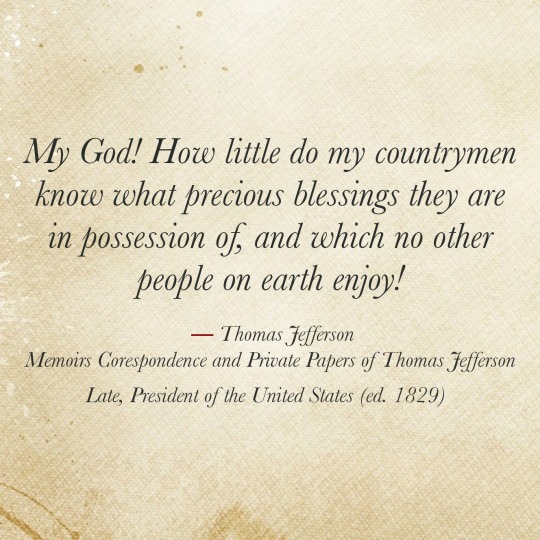
#government#quotes#quotations#freedom#liberty#constitution#quoteoftheday#politics#political quotes#democracy#left wing politics#socialism fails#socialism#history#thomas jefferson
40 notes
·
View notes
Text
leftist infighting going on in [redacted] can i get a moment of peace. anyway like, i always respect people whose views i dont 100% agree with but who r out there at protests and meetings and participate in community action a LOT more than anarchists who r loud on discord but cannot even be arsed to come to meetings. the bare minimum
19 notes
·
View notes
Text

omar shariff ranking 48th out of 50 on this list 😐😐😐😐😐😐😐😐😐
#laurel and hardy were on that list and they did better than him thats crazy#youssef chahine your boytoy is failing#democracy is a mistake
7 notes
·
View notes
Text
how
how do people keep fucking it up so bad
like don’t you remember the court? the fucking cue? the 15 something fbi classified documents stolen by him? are people actually blind? like are they genuinely fucking stupid? are you clinically insane? do you need a doctor? are you speaking the same language? have you taken your medicine? are you ok? did they do something to you? are you actually that dumb? do you need help? are you just fucking around now? do you just not care? if you don’t care why do you keep trying so hard? do you live under a rock? do you really just hate people? do you really wanna win so hard? holy shit
#twitter#trump is a threat to democracy#trump on twitter#why#elon musk#elongated muskrat#I just really can't#america was a failed experiment and I don't even live there
10 notes
·
View notes